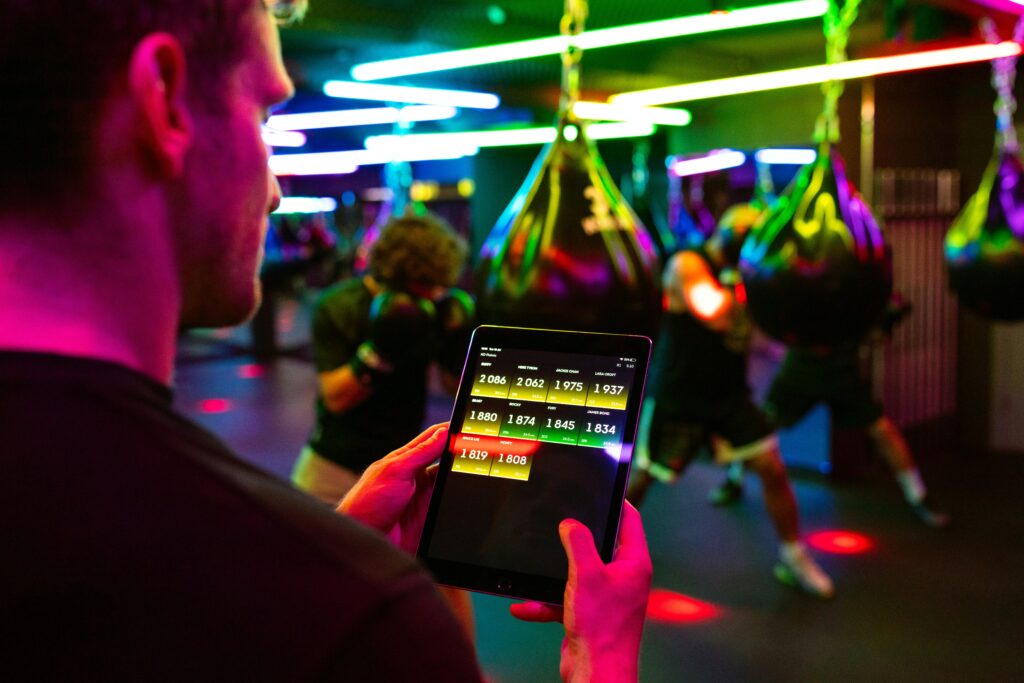Ever wondered what it would take for a digital health app to be as fun and addictive as your favorite video game? With thousands of health apps on the market, very few manage to deliver the kind of engagement that keeps users coming back day after day.
That’s where digital health gamification comes in. By learning from the gaming in healthcare movement and borrowing strategies from the video game industry, health tech innovators can create tools that patients actually enjoy using.
1. Your Onboarding Should Be Story-Driven
In-app onboarding is rarely the most enjoyable part of using an application. But what if it felt like the start of a game?
Instead of pushing users to hand over their email or phone number, experts recommend creating an immersive experience. Bring the user into a scene, give them a character, and make them feel part of the story. With story-driven onboarding, digital health apps can turn a chore into an adventure.

2. Fun Rewards for Digital Health Initiatives
Points alone are boring. But gamification in health can transform simple actions into meaningful rewards.
For example, instead of just tracking steps or calories, gamified health apps can connect actions to real-world outcomes – like planting a tree or unlocking community rewards. This type of design provides a holistic experience and can drive lasting behavioral change.
Recent research supports this: a 2025 meta-analysis found that gamified mobile health apps significantly increased daily physical activity and retained engagement even after the intervention ended.
3. Monitor Statistics and Retention Like a Hawk
Video game companies obsess over retention – and so should health tech innovators.
One key lesson: people prefer apps that give them more control over their data. In fact, gamified learning environments in healthcare education have been shown to boost attention, satisfaction, and retention among learners.
The same principle applies to gaming in healthcare apps for patients. Privacy and personalization are critical to sustaining engagement.
4. Building a Health Game Takes More Time
Developing a game-like app isn’t a quick sprint. A basic health app might take six months, but a gamified health app can take closer to 24 months and requires a much larger team.
Alongside developers, you’ll need illustrators, game designers, writers, and behavioral scientists. For startups, that means preparing for bigger investment and longer timelines if they want to bring gamified solutions to market.
Beyond Patients: Gamification for Healthcare Workers
Gamification isn’t just for patients. Hospitals and training programs are using infection control games for healthcare workers to drive safer practices.
A 2025 study found that gamified hygiene interventions increased hand sanitizer use by 170% among staff – outperforming simple reward systems. This shows gamification can improve both patient and workforce outcomes.
Final Thought: Can’t Beat Them? Join Them.
If health tech wants to create apps that engage and retain users, the industry must learn from video games – apps that millions of people play daily for fun, not obligation. The future of digital health lies in making care not just accessible, but exciting.
Want to explore the future of digital health gamification and how gaming in healthcare is transforming user engagement? Join us at Health Tech Forward – where the right investors meet the right startups. Or if you’re building the next great gamified app, apply to Health Tech Challengers for the chance to pitch your idea onstage.
FAQ: Digital Health Gamification
1. What is digital health gamification?
It’s the use of game-like elements – points, rewards, challenges, and storytelling – in health apps to boost user engagement.
2. Why don’t most health apps retain users?
Most apps lack fun and interactivity, which video games excel at. Without gamification, users lose interest quickly.
3. What are examples of gamification in health?
Apps that reward physical activity with badges, social competition, or real-world rewards like tree planting are good examples.
4. Can gaming in healthcare help professionals, not just patients?
Yes. Infection control games for healthcare workers are being used to improve hygiene and safety in clinical settings.
5. Where can I learn more about health tech innovation?
At Health Tech Forward, where global innovators, startups, and investors gather to explore the latest health tech trends.



